Web 3.0: Browsers With Blockchain And Cryptocurrencies
27 May 2019 12:24, UTC
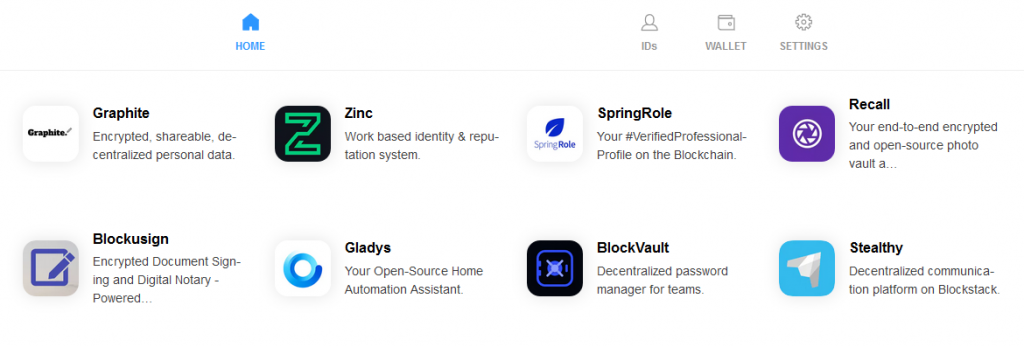 In blockchain technology, everything is more or less connected with the idea of decentralization as well as the creation of ecosystems, where you can trust them your important and private data.
In blockchain technology, everything is more or less connected with the idea of decentralization as well as the creation of ecosystems, where you can trust them your important and private data.
05-02-2019 16:59:30 | Guest posts
Blockchain and Internet
Blockchain is a system in which the absence of the need for a person’s trust in another person is brought to life technically and mathematically proven. The most important part of this system is the Internet, a network of computers on Earth, an independent association of computing devices. However, there is one "exception."The Internet without borders, free and democratic space, where information from every corner of the planet is accessible to everyone connected to the network, where there is no censorship and restrictions… But this is just a myth.
Perhaps, once in a lifetime history, it was real. Anyway, along with technical development (distribution among the population, increasing data transmission speed, etc.), the humanity brought to the Internet all its vices and shortcomings: deception, fraud, theft, shadow activity of various degrees of criminality, followed by censorship, restrictions on freedom of speech, absurd and clumsy laws, bureaucracy and new barriers.
The dream of scientists and technologists of free virtual space was under threat. There was nothing surprising in the fact that the experts accepted the new challenge and began to look for a way to return the lost. Peer-to-peer data transfer protocols, cryptographic technologies and decentralized ledgers successfully work in a variety of services, they can be used to improve the Internet, “corrupted” by corporations and regulators. The idea of “new Internet” is in the air.
Web 3.0 — the new Internet
Web 3.0 is a controversial term, and each interprets it in its own way. The most common features of this generation are the distribution of high-performance services, a shift in focus from user-generated content to high-quality content that meets the needs of visitors in the best way.
07-03-2019 14:43:08 | Technology
Decentralized Internet is a major subject for just one article, and in this text, we discuss one of the solutions for Web 3.0 — browsers with blockchain and cryptocurrency support.
Opera
The creators of the Opera browser decided to follow the interest in crypto technologies. They updated the mobile version with the implementation of the crypto wallet for ERC-20 tokens as well as a browser for the decentralized applications of the Ethereum network.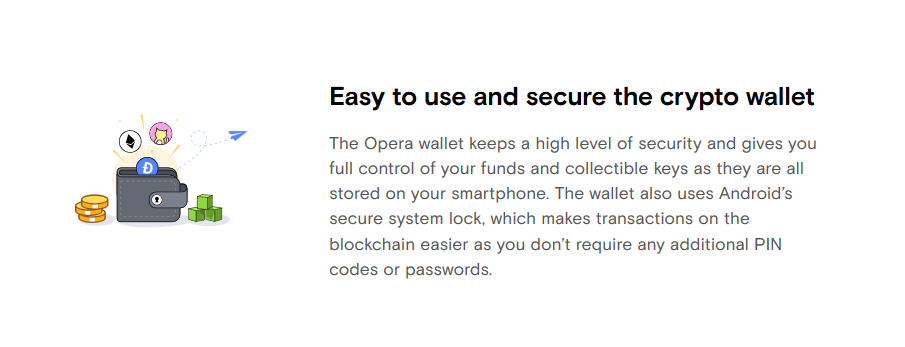
Users of desktop Opera browser will not be able to use a cryptocurrency wallet. At the moment, this option is only possible when installing the version "For Developers".
Among the features of this browser, there are some built-in services worth mentioning: VPN, ad blocker and turbo mode. They are fully consistent with the spirit of Web 3.0 with its care for the personal data of users and the protection of their privacy when visiting web pages.

Opera is a web browser that uses the same basic software development as Chrome (WebKit and V8), ranking fifth (2.8%) in popularity (in April 2019, according to the W3Counter). This is the first product from mass segment browsers in which cryptocurrency is officially supported.
It can be assumed that Opera will continue to move in the direction of cryptocurrencies and blockchain, because now one of the main investors of Opera Ltd is Bitmain which is one of the major crypto companies.
Brave
This browser, just like Opera, aims to save users from intrusive advertising and web-services collecting personal information, but Brave uses a different approach. Based on the use of special BAT tokens, the system is designed to reward advertisers and encourage users to participate in the distribution of income among authors whose web pages have been visited.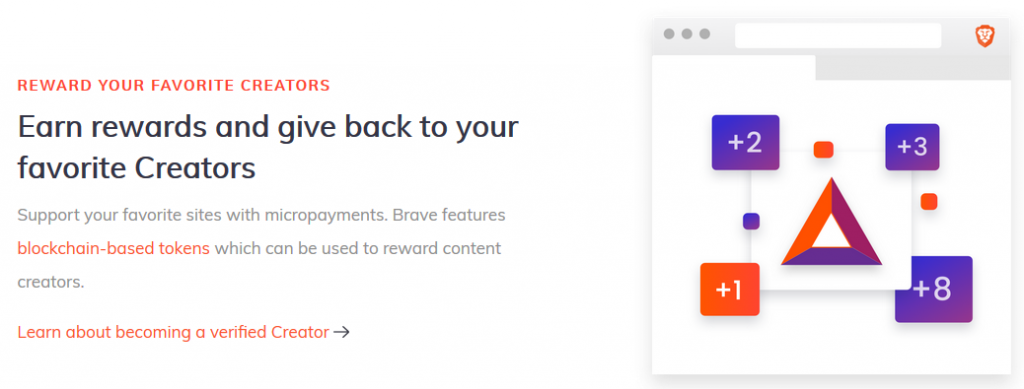
Yes, Brave removes banners and ads from your web content, but replaces them with own “trusted” and “honest” advertising. This approach is expected to meet criticism and accusations of the browser’s creators in the dishonest approach, because showing visitors advertisements from web content owners is a direct source of income for authors and publishers, and Brave, under a specious excuse, removes them and shows other ads.
Speaking about Brave blockchain content (BAT tokens), this function is intended only for the advertising business model. There are no other ways to use "base attention tokens". The wallet is embedded in the browser, it’s suitable only for BAT and intended to reward the authors of the content.
The Brave Software founder Brendan EICH is known for his part in such legendary IT projects as Netscape (as a developer), Mozilla Project (as one of the founders) and JavaScript (as an author). Brave uses the Chromium open browser engine by Google.
Since 2018, Brave has supported Tor software, which is used in private browsing mode. In December 2018, it was announced that Brave will become the installed by default browser in the Exodus 1 blockchain smartphone of HTC. Still, at the moment on the main page of the device we can see Opera’s “first crypto browser”.
Brave is the default browser on HTC Exodus crypto-phone https://t.co/QC6NCnQsPV via @CNET
— BrendanEich (@BrendanEich) 10 декабря 2018 г.
Blockstack Browser
The next browser is completely different from the previous ones, and probably the best contender for a review in another article. The browser will contain information about platforms and ecosystems that represent the Internet of the new generation.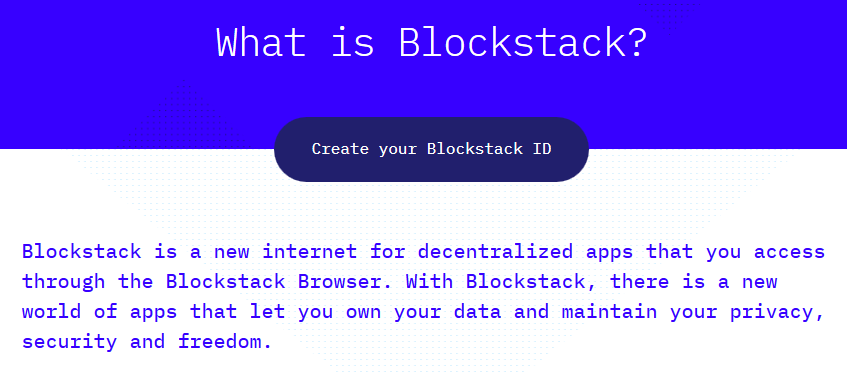
On the other hand, the Blockstack is determined to show the contrast between two different concepts: the decentralized Internet and the regular one where you have to use different tricks offered by Opera and Brave in order to preserve personal data and confidentiality.
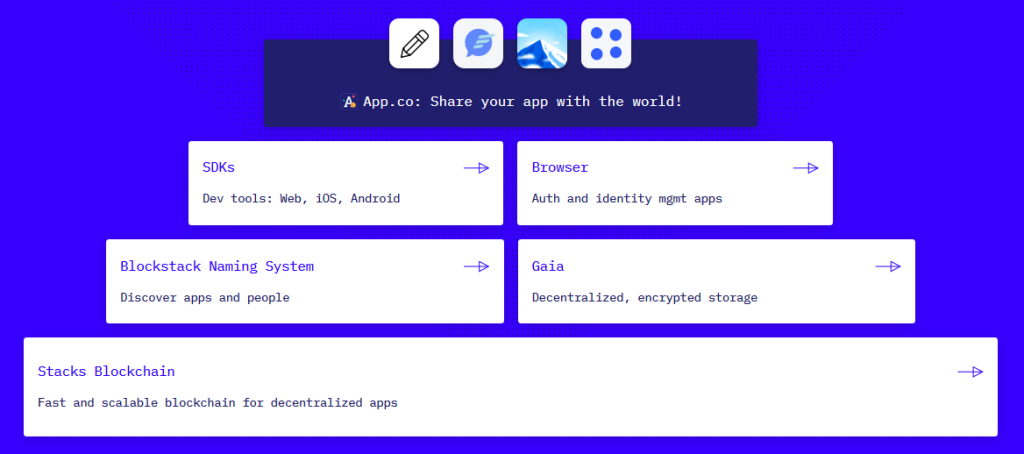
Blockstack is a platform in which developers create decentralized applications running on the blockchain. Users get a digital ID and using the Blockstack Browser they select the applications they need and launch them. Blockstack Browser is an application that can work through the web interface of any regular browser or as a separate program: for Windows 10, Linux or MacOS.

The Blockstack project set of applications cannot serve as a full replacement for all familiar services so far. For that to be possible, more users and developers should start working with the platform. Investors, however, are optimistic about the future of the project and invest money in it.
The future of the Internet
19-02-2019 14:54:56 | Guest posts
We can just try to foresee that projects related to more independent network space will attract enthusiasts. Well, and if different countries continue make borders and barriers in the worldwide network, then users will pay closer attention to browsers like Blockstack.
Image courtesy of Bitcoin Exchange Guide